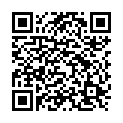Recommended or required reading:
_ Baum, T. (u. a.) (Hrsg.), Saisonality in tourism, latest edition
_ Beniers, C.: Managerwissen kompakt: Interkulturelle Kommunikation, München 2004
_ Bernet, B., Bieger, T., Finanzierung im Tourismus, Haupt, Bern, latest edition
_ Bieger, T., Keller, P., (Hrsg.), Managing Change in Tourism: Creating Opportunities - Overcoming Obstacles, Berlin, latest edition
_ Bowdin, G., Allen, J., O´Toole, W., Harris, R., & Mc Donnell, I., Events Management, Great Britain: Elsevier, latest edition
_ Buck, M., Conrady, R., (Hrsg.), Trends and Issues in Global Tourism 2007 ff, Springer, Heidelberg, 2007 ff
_ Cooper, C. (u. a.) (Hrsg.), Tourism development _ environmental and community issues, latest edition
_ Deresky, Global Management, Strategic and Interpersonal, New Jersey
_ Green Champions in Sport and Environment, Guide to environmentally-sound large sporting events, German Federal Ministry for the Environment, Nature Conservation and Nuclear Safety, German Olympic Sports Confederation, Berlin, 2007
_ Dettmer, H. (Hrsg.), Tourismus-Marketing-Management, Oldenbourg, München, 1999
_ Dülfer, E.: International Management in Diverse Cultural Areas / Internationales Management in unterschiedlichen Kulturbereichen, München/Wien 1999 (in 2 languages!).
_ Franz, S., Powerpoint, Verlag Markt und Technik , München, latest edition
_ Haedrich, G., Kaspar, C. u. a. (Hrsg.), Tourismus-Management, 3. Auflage, de Gruyter, Berlin u. a., 1998
_ Hasenstab, M.: Interkulturelles Management, Berlin 1999.
_ Hofstede, G.; Interkulturelle Zusammenarbeit. Kulturen - Organisationen - Management, Wiesbaden 1993
_ Holloway, C., The business of tourism, Pearson Education, London, latest edition
_ Hoyle, L., Event marketing how to successfully promote events, festivals, conventions and expositions, Wiley, New York, latest edition
_ Hungenberg, H., Problemlösung und Kommunikation, München, latest edition
_ Jones, M. (2010). Sustainable Event Management - A Practical Guide. London: Earthscan
_ Kornmeier, M., Wissenschaftstheorie und wissenschaftliches Arbeiten - Eine
Einführung für Wirtschaftswissenschaftler, latest edition
_ Minto, B., Das Pyramiden-Prinzip _ Logisches Denken und Formulieren, Econ, Düsseldorf, 1993 (Urheberin und Ex-McKinsey)
_ Müller, H., Qualitätsorientiertes Tourismus-Management, Haupt, Bern, 2004
_ Nufer, G, Event-Marketing und _Management. Theorie und Praxis unter besonderer Berücksichtigung von Imagewirkungen, DUV, Wiesbaden, latest edition
_ Page, S., Tourism Management, Oxford: Butterworth-Heinemann, latest edition
_ Pompl, W., Lieb, M. (Hrsg.), Internationales Tourismus-Management, Vahlen,
München, latest edition
_ Pompl, W., Touristikmanagement 1, Springer, Heidelberg u. a., latest edition
_ Pompl, W., Touristikmanagement 2, Springer, Heidelberg u. a., latest edition
_ Raj, R., & Musgrave, J. (2009). Event Management and Sustainability. Oxfordshire:
_ CAB International
_ Robbins, Organizational Behavior, New Jersey
_ Rodrigues, C.; International Management: A Cultural Approach, Cincinnati (Ohio) latest edition
_ Schugk, M.: Interkulturelle Kommunikation, München 2004.
_ Schulz von Thun, F.; Miteinander reden 1-3, Reinbeck 2005 resp. 2006
_ Theisen, M.R., Wissenschaftliches Arbeiten, Verlag Vahlen, München, latest edition
_ Vogt, G.; Erfolgreiche Rhetorik, München, Wien, latest edition
_ Forsberg, K. et all, (2000), Visualizing Project Management, A model for business and technical success, Second Edition, John Wiley and Sons Inc.
_ Hobel, B. and Schütte, S. (2006), Projektmanagement, Wiesbaden, Betriebswirtschaftlicher Verlag Gabler
_ Lidke, H. (2007), Projektmanagement, Methoden, Techniken, Verhaltensweisen, Evolutionäres Projektmanagement, München: Carl Hanser Verlag, latest edition
_ Meredith, J., (2012), Project Management, A Managerial Approach, John Wiley & Sons Inc., latest edition
[updated 17.09.2018]
|


